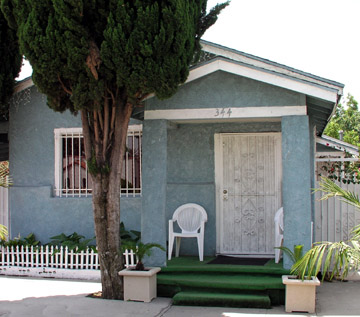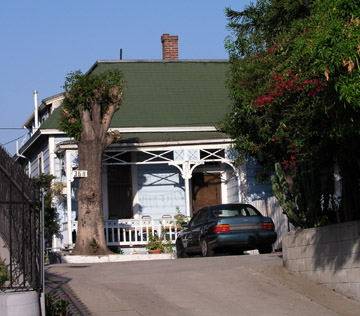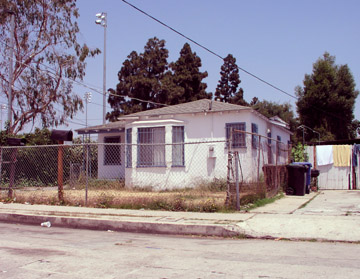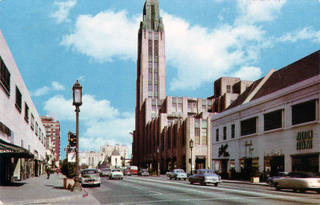Los Angeles
On July 7, a pretty blonde woman came to the home of Mrs. Marie J. Crow, 344 W. 82nd Street, to inquire about the classified ad she’d posted, offering a room for a mother and a child. With her was a little girl, around 4 ½ years of age. Mrs. Crow explained that the room had been rented, but she agreed to care for and board the child for $15 a week.
The blonde eagerly accepted the offer. She introduced herself as Toni, and explained that she and her daughter Sandy had just come from Seattle, that she was a cocktail waitress, separated from her husband, and that she had sold her house to finance an operation for the child, who was born blind but could now see. And if Mrs. Crow would just keep an eye on Sandy, she’d just go down to the post office and get some money-
And of course that was the last Mrs. Crow saw of Sandy’s mother. After a week, she phoned police, and Sandy was taken to Juvenile Hall as an abandoned child. A story in the Times about the little girl’s plight quickly rousted the errant mother, Mrs. Iona (Toni) DuBose, 30. She told reporters that she was broke and had no friends in Los Angeles, that Sandy was hungry, and she couldn’t stand to see the child suffer.
She’d come to town looking for her estranged husband, a barman by the name of James (Slim) DuBose, in hopes that he would pony up some cash for Sandy’s eye treatments-astigmatism had made her blind from birth until an operation last fall. Since leaving Mrs. Crow’s house, Toni had found a bar girl’s gig at a café on Main Street, and had rented a hotel room.
After interviewing the mother, Juvenile Officer Alice Owen said, “This woman needs help more than punishment,†and declined to file charges. The case is being turned over to County Probation for hearing and disposition.
Suggested reading: Desperate Journeys, Abandoned Souls : True Stories of Castaways and Other Survivors by Edward E. Leslie



















